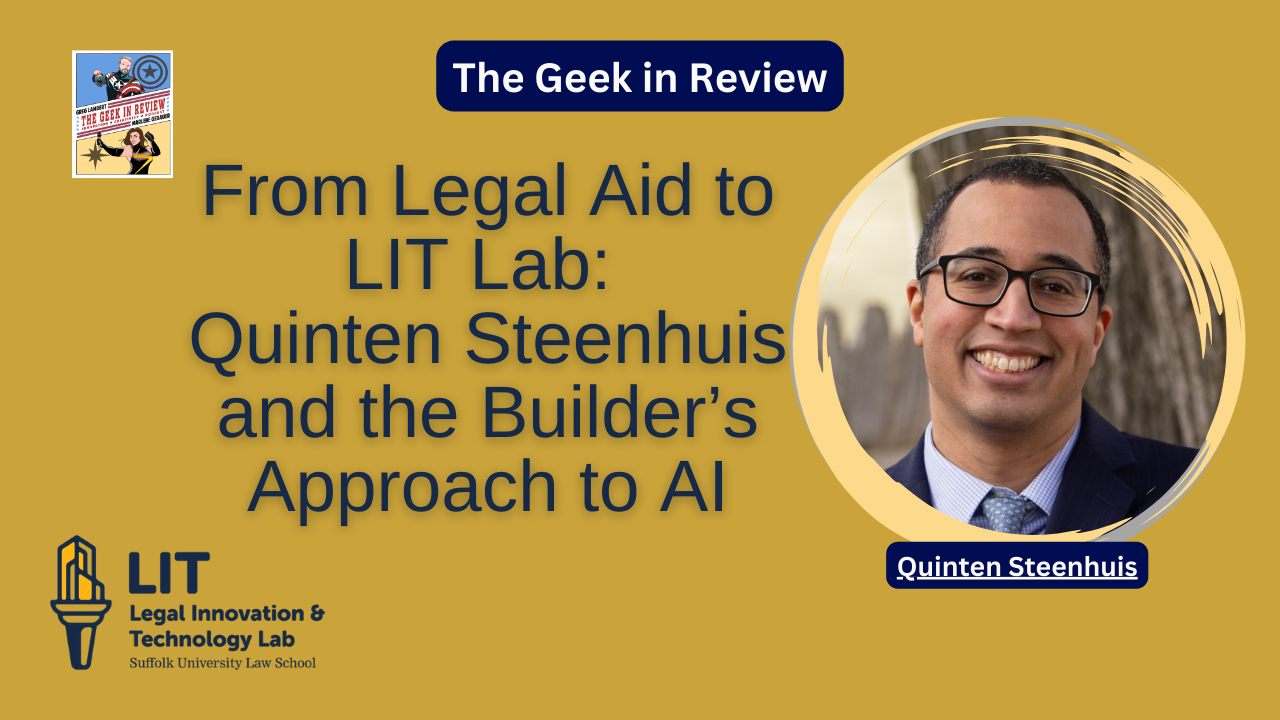Quinten Steenhuis brings a builder’s mindset to legal innovation, rooted in early Indymedia activism where scavenged hardware became community infrastructure. That scrappy origin story carries through a dozen years of eviction defense at Greater Boston Legal Services, with a steady focus on tools that help people solve problems without waiting for a savior in a suit. Along the way, Quinten also lived the unglamorous side of mission tech, keeping systems funded, supported, and usable when budgets get tight and priorities get loud.
The conversation then jumps to Suffolk Law’s approach to generative AI education, including a required learning track for first-year students. Quinten frames the track as foundational training, then points to a deeper bench of follow-on courses and the LIT Lab clinic where students build with real tools, real partners, and real stakes. The throughline stays consistent, exposure alone solves nothing, so Suffolk puts reps, projects, and practice behind the syllabus.
A standout segment tackles the “vaporware semester” problem, where student-built prototypes fade out once finals end. The LIT Lab fights that decay by narrowing tool choices, standardizing around DocAssemble, and supervising work with a clinic-style model, staff stay close, quality stays high, and maintenance stays owned. Projects ship through CourtFormsOnline, with ongoing updates, volunteer support, and a commitment to keep public-facing legal help online for the long haul.
Then the episode turns toward agentic workflows, with examples from Quinten’s consulting work in Virginia and Oregon. One project uses voice-based intake to screen for eligibility, confirm location and income, gather the story in a person’s own words, and route matters into usable categories. Another project speeds bar referral by replacing slow human triage with faster classification and better user interaction patterns, fewer walls of typing, more guided choices, more yes-or-no steps, and fewer dead ends.
In the closing stretch, Quinten shares the sources feeding his learning loop, LinkedIn, Legal Services Corporation’s Innovations conference, the LSNTAP mailing list, podcasts, and Bob Ambrogi’s LawSites, plus the occasional spicy Reddit detour. The crystal ball lands on a thorny challenge for both academia and practice, training lawyers for judgment and verification when AI outputs land near-correct most of the time, then fail in the exact moment nobody expects. Quinten’s bottom line feels blunt and optimistic at once, safe workflows matter, and the public already uses general chat tools for legal help, so the legal system needs harm-reducing alternatives that work.
Listen on mobile platforms: Apple Podcasts | Spotify | YouTube
[Special Thanks to Legal Technology Hub for their sponsoring this episode.]
Email: geekinreviewpodcast@gmail.com
Music: Jerry David DeCicca
Links (as shared by Quinten):
Transcript
Continue Reading From Legal Aid to LIT Lab: Quinten Steenhuis and the Builder’s Approach to AI



